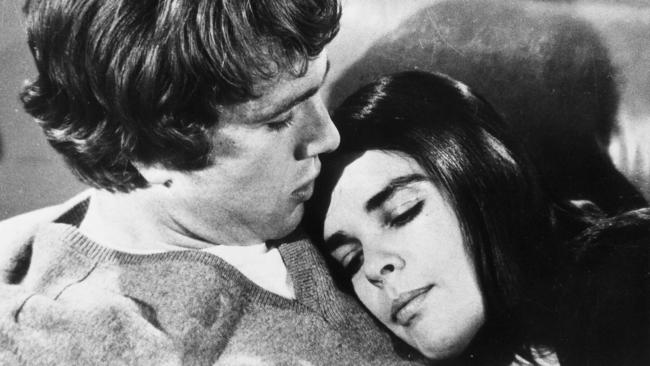In a sorry state to be so unforgiving

Rugby Australia and Israel Folau reached a settlement on the basis of an uneasy mixture of apologies, one corporate, the other personal. Rugby Australia apologised as an organisation, though not its chief executive as an individual, “for any hurt or harm” caused to Folau and his wife, while Folau apologised personally.
Earlier, Westpac apologised at a board level for allegedly flouting money-laundering laws and facilitating child-sex trafficking.
Jeremy Corbyn offered a faux apology for Labour’s disastrous showing in the British election, while Prince Andrew shunned personal remorse for those harmed during his association with a convicted sex offender. The nature of saying sorry is ceasing to be a private experience and imperative. It is now corporate and communal rather than personal, abstract and anonymous instead of directly accountable.
The 1970 movie Love Story popularised the line: “Love means never having to say you’re sorry.” This sentiment resonated with the buoyant mood of liberation in the 1960s, which authorised the banning of all inhibitions, including the instinct to feel sorry for any wrongs committed.
The passage of 50 years has given rise to a sharply different outlook. Our generation is spurred not by a sense of emancipated confidence but by feelings of anxiety and entrapment, which find expression in a mixture of dodging personal culpability and indulging in political posturing and social censoring.
We now express sorrow more as a member of a group, or of a generation, than as an individual. Our championing of individual rights is no longer matched by admissions of personal responsibility — as though we prefer to take refuge in corporate or generational shame and avoid the demands that individual virtues like honesty and humility have traditionally imposed on us.
Our acts of contrition are promoted as collective events delivered in public settings like parliaments. Whether relating to social issues like racial discrimination or broader threats that require global action such as climate change, they are less the preserve of the private conscience than the property of public display and social conformity.
We express sorrow for historical wrongs, such as the harm inflicted on our indigenous people, and feel responsible for events in which the present generation was not involved. But apologising for wrongs that one did not directly commit tends to use up a society’s moral capital. It risks trivialising the act of apology and distracting us from remedies that would make a difference in our own time.
Identity politics has played powerfully into this trend to corporate rather than personal apology. Certain groups are accorded victim status based on race or gender. This allows them to escape criticism, while other groups judged as suspicious — ageing white males or serious Christians — may be legitimately discriminated against in the cause of retribution.
A key issue underlying today’s cultural shift from never having to say you’re personally sorry to feeling communally apologetic is the extent to which it is bound up with the experience of guilt.
This may seem an absurd proposition in an age that prides itself on the disposal of guilt as a religious hangover. Yet it is hard to escape the impression that the corporatisation of shame reflects profound moral changes that have not been fully analysed. Certainly they cannot be explained in conventional political terms.
As British cultural commentator Douglas Murray pointed out, “in some manner, with which we still haven’t begun to wrestle, we have created a world in which forgiveness has become almost impossible”.
The personal urge to confess is frustrated and even forbidden in a society that has become unwilling to forgive and is inclined to equate vengeance with justice. The campaign to protect journalistic sources against the state has highlighted a curious parallel with the Catholic Church’s desire to protect the confessional. There has been a robust defence of the freedom of the press but no similar endorsement of the freedom of the confessional.
The journalist’s right to protect sources is upheld but not the priest’s right to guarantee the privacy of a penitent. Yet revelations in either case depend on a pledge of confidentiality. The journalist and the priest are both bound by a confessional seal — in the one case, protecting a whistleblower reporting on others; in the othercase, a whistleblower reporting on himself.
Our society offers few avenues for dealing with guilt. The one favoured by progressives is virtue signalling, but this fails to resolve the problem since it comes from a sense of moral superiority and self-righteousness rather than an act of humility and self-honesty.
One historical breakthrough of Christianity was to build into our culture a morality that encouraged, demanded, self-correction. Stephen Spender noted the change fellow poet WH Auden had to make when he became a Christian: ‘‘Social criticism had taken the place of scrupulous self-criticism, but now he accepted a dogma which criticised him and which was not simply an instrument for criticising others.”
The sacramental act of self-criticism, in which guilt is confessed to a priest who believes he is extending mercy not by his own power but on behalf of Christ as forgiver, has hugely declined. Following the clerical sex scandals, confession is set to become a public and legally accountable practice, which will only destroy it as a social safety valve, if not a ritual of personal mercy and forgiveness.
Not only religious faith in Australia will be diminished by this loss. Our secular culture will be affected. It will take away a practice that symbolised the sense of individual responsibility and restrained our cultural tendency to collectivise guilt as the pathway to solving social problems.
Karl Schmude is a co-founder of Campion College Australia and a former university librarian.


Recent events have exposed a crucial shift in confessions of wrongdoing.